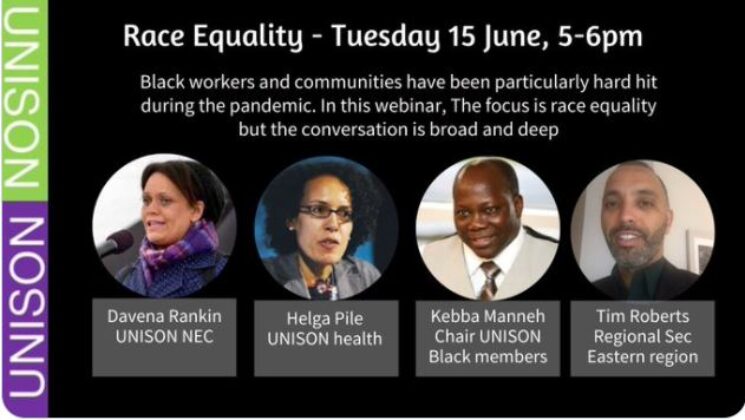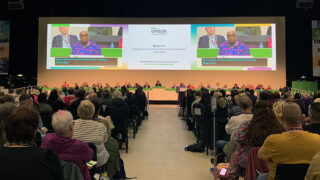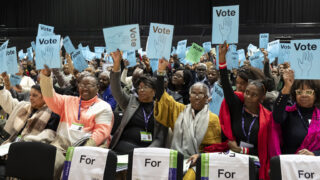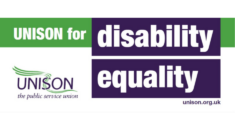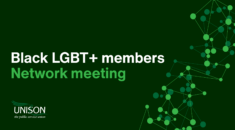“Leaving employers to tackle racism is not working.” That was the uncompromising message from senior Black UNISON activists speaking at a conference fringe event this week, looking at race equality.
NEC member Davena Rankin was joined by deputy head of health Helga Pile, Chair of the National Black Members Committee Kebba Manneh, and UNISON Eastern regional secretary Tim Roberts, for an online analysis of the strides UNISON has made tackling workplace racism and what more needs to be done.
Speakers agreed that real change will only be achieved through Black staff organising themselves and demanding it.
Helga Pile was scathing in her assessment of the health service’s record on equality. “We know the NHS has deep rooted racial problems. The higher up the organisation you go the less Black people you see in positions of power.
“Black people are more likely to be disciplined and less likely to receive career development opportunities. We’ve heard commitments from those at the top about their desire to tackle racism, but the pace of change is glacial at best.”
Kebba Manneh, a branch health activist in Cymru/Wales shared insights into how, during the greatest health challenge for a generation, Black workers drove change that protected lives and livelihoods and benefitted all staff.
“During the early days of the COVID crisis there was clear evidence that the virus was hitting Black workers and Black people the hardest. Black men were 3.3 times more likely to die from COVID than white men, while Black women were 2.4 times more likely to lose their lives than their white counterparts.”
In response to the data, Kebba’s branch called on employers to fulfil their statutory duty of care to all workers, particularly the more vulnerable Black staff, to provide a safe working environment under the 1974 health and safety at work Act.
“We mapped where Black staff worked and developed a risk assessment toolkit to make sure measures were in place to protect them,” he said.
“From proper PPE, to assessing individual risk profiles. That toolkit has now been rolled out across all 12 UNISON regions. That’s a massive coup for us, and when fully and meaningfully implemented, will benefit not just Black staff, but all staff.”
Take control
Taking control is an approach Tim Roberts finds works in his region. He credits the Black Lives Movement for shaming many employers into working with unions to try to deliver race equality, although he’s suspicious of some of their motives.
“Some employers may only want to give the impression that they want race equality. Whether they’re sincere or not really doesn’t matter, they’ve opened the door for us as a union to deliver the change our workers need.”
The speakers were unanimous in their belief that change will come more quickly when Black people occupy leadership positions in the union and in the workplace, and that their presence at the top table makes institutions stronger and fairer.
Tim’s stirring closing remarks summed up the feeling of the speakers and the online audience: “Black members make great Black members’ officers. But they also make really good health and safety officers, convenors, branch chairs, treasurers, secretaries, regional convenors and as Davena knows, NEC members.”

